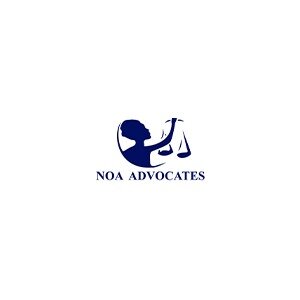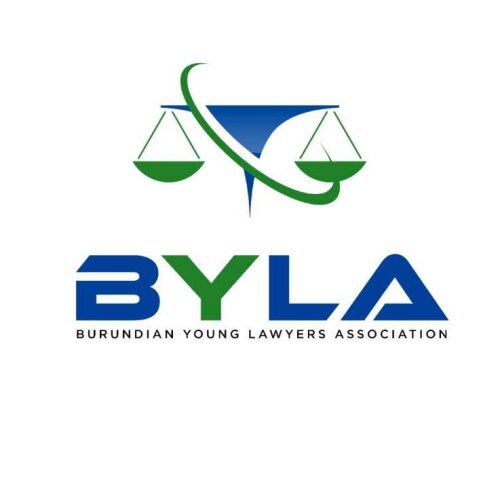Best Energy, Environment & ESG Lawyers in Burundi
Share your needs with us, get contacted by law firms.
Free. Takes 2 min.
Or refine your search by selecting a city:
List of the best lawyers in Burundi
About Energy, Environment & ESG Law in Burundi
Energy, Environment & ESG (Environmental, Social, and Governance) law in Burundi covers a wide range of matters related to the use of natural resources, environmental protection, and the implementation of responsible business and governance practices. As Burundi seeks to develop its energy sector and promote environmental sustainability, the legal framework aims to balance economic development with the protection of natural resources and communities. ESG principles, though still developing in Burundi, are increasingly important for businesses and investors operating within the country.
Why You May Need a Lawyer
Legal issues in the fields of energy, environment, and ESG can be complex and multifaceted. You may need a lawyer in situations such as:
- Obtaining licenses or permits for energy projects, such as hydropower, solar, or other renewable energy ventures
- Ensuring compliance with environmental regulations for industrial, mining, or agricultural projects
- Handling land use or resource rights disputes, especially involving local communities or indigenous populations
- Responding to allegations of environmental damage, pollution, or breaches of sustainability standards
- Implementing ESG policies and reporting for businesses, particularly those seeking funding or investment from international sources
- Negotiating contracts or partnerships for energy infrastructure projects
- Addressing government enforcement actions, investigations, or penalties
A lawyer who understands the local context can help you navigate these challenges, avoid costly mistakes, and protect your interests.
Local Laws Overview
Burundi’s legal framework for energy, environment, and ESG is shaped by several key laws and principles:
- Energy Law: Burundi's energy sector is primarily governed by the Law on Electrical Energy, which sets the rules for production, distribution, and commercialization of electricity. Renewable energy projects are encouraged by government policies to diversify the energy mix.
- Environmental Law: The main environmental legislation is the Environmental Code, which establishes standards for waste management, pollution control, and environmental impact assessments. Projects likely to affect the environment must undergo an impact assessment and obtain approvals from relevant authorities.
- Land and Resource Rights: The Land Code and Mining Code regulate the use of land and natural resources, including the rights of local and indigenous communities. Land acquisition for energy or environmental projects requires due diligence and adherence to community consultation processes.
- ESG Principles: While there is no comprehensive ESG law, elements are found in various regulations addressing corporate governance, labor standards, anti-corruption, and social responsibility. International investors often require local companies to disclose and adhere to ESG standards.
- Penalties and Enforcement: Non-compliance with environmental or energy regulations can result in substantial fines, project suspensions, or even criminal liability in severe cases.
Frequently Asked Questions
What permits are required to start a renewable energy project in Burundi?
You will need to obtain permits from the Ministry of Energy and Mines, conduct an Environmental Impact Assessment, and get approval from local authorities.
How are environmental impact assessments (EIAs) conducted?
EIAs must be carried out by certified experts, submitted to the relevant authorities, and involve consultation with affected communities before approval is granted.
Are there incentives for investing in renewable energy in Burundi?
The government offers various incentives, including tax breaks and simplified licensing procedures, to encourage private investment in renewable energy projects.
What environmental regulations must companies comply with?
Companies must manage waste, prevent pollution, use resources responsibly, and ensure their activities do not harm the environment or nearby communities. Compliance with the Environmental Code is mandatory.
What are ESG requirements for businesses in Burundi?
Though not fully standardized, businesses are expected to follow laws on environmental protection, labor, anti-corruption, and social responsibility. International partners may require ESG reporting.
Can local communities contest large energy or environmental projects?
Yes, communities can raise objections during public consultations and, if necessary, challenge project approvals in court if they believe their rights or the environment are at risk.
How are land acquisition disputes resolved?
Disputes are typically resolved through negotiations, mediation, or, if necessary, by bringing the matter before a competent court.
What are the penalties for violating environmental laws?
Penalties may include fines, project suspensions, remediation orders, and even criminal charges for serious offenses.
How can a business ensure compliance with ESG standards?
Businesses should adopt clear policies, train employees, conduct regular audits, and consult legal experts knowledgeable about ESG and local laws.
Where can I get more information or government guidance?
Relevant ministries and regulatory authorities provide guidelines and can offer information about applicable rules and procedures for energy, environment, and ESG-related matters.
Additional Resources
Several institutions and organizations can help you find information or guidance related to Energy, Environment, and ESG in Burundi:
- Ministry of Energy and Mines (Ministère de l’Energie et des Mines): The main governmental body for energy policy and project oversight.
- Ministry of the Environment, Agriculture and Livestock: Handles environmental regulations, permits, and community consultations.
- Burundi National Environmental Agency (OBPE): The agency responsible for enforcing environmental laws and conducting environmental impact assessments.
- Burundi Investment Promotion Authority (API): Provides support and information for investors, including those in the energy and environmental sectors.
- Legal aid organizations: Several NGOs operate in Burundi to offer legal assistance, advice, and representation in environment and land-related matters.
Next Steps
If you require legal assistance in the fields of Energy, Environment, or ESG in Burundi, consider the following steps:
- Document your situation, including any contracts, permits, correspondence, or notices received.
- Identify the specific issue or question you need help with, such as compliance, dispute resolution, or obtaining permits.
- Contact a local lawyer or law firm with experience in energy, environmental, or ESG matters. Seek recommendations or consult the Burundi Bar Association.
- Reach out to relevant government agencies to obtain official information regarding requirements or ongoing proceedings.
- Gather any supporting evidence or reports that may be relevant to your legal inquiries.
Seeking professional legal advice early can help ensure that you meet regulatory requirements, avoid disputes, and contribute to sustainable development in Burundi.
Lawzana helps you find the best lawyers and law firms in Burundi through a curated and pre-screened list of qualified legal professionals. Our platform offers rankings and detailed profiles of attorneys and law firms, allowing you to compare based on practice areas, including Energy, Environment & ESG, experience, and client feedback.
Each profile includes a description of the firm's areas of practice, client reviews, team members and partners, year of establishment, spoken languages, office locations, contact information, social media presence, and any published articles or resources. Most firms on our platform speak English and are experienced in both local and international legal matters.
Get a quote from top-rated law firms in Burundi — quickly, securely, and without unnecessary hassle.
Disclaimer:
The information provided on this page is for general informational purposes only and does not constitute legal advice. While we strive to ensure the accuracy and relevance of the content, legal information may change over time, and interpretations of the law can vary. You should always consult with a qualified legal professional for advice specific to your situation.
We disclaim all liability for actions taken or not taken based on the content of this page. If you believe any information is incorrect or outdated, please contact us, and we will review and update it where appropriate.
Browse energy, environment & esg law firms by service in Burundi
Burundi Attorneys in related practice areas.
Browse energy, environment & esg law firms by city in Burundi
Refine your search by selecting a city.











